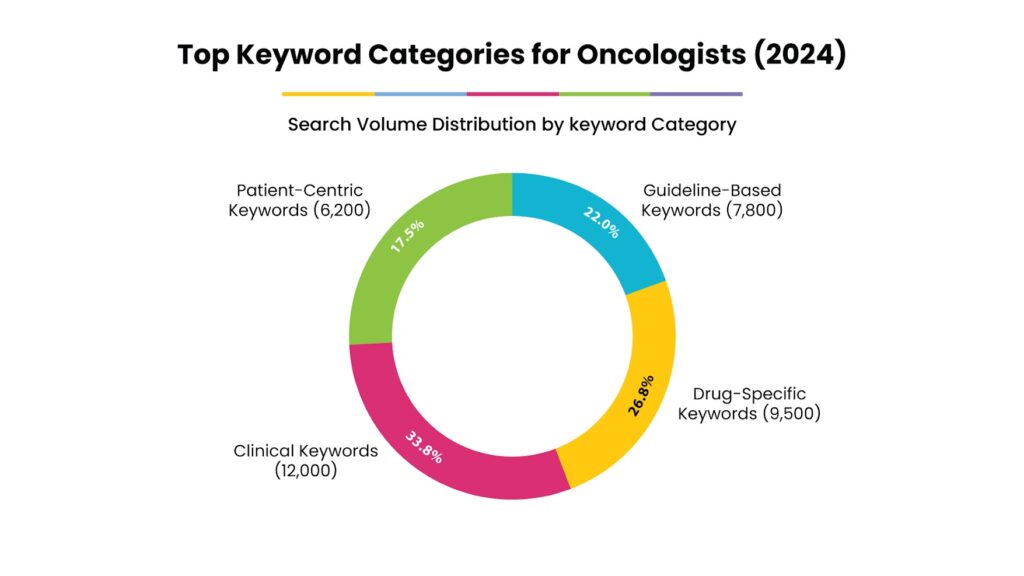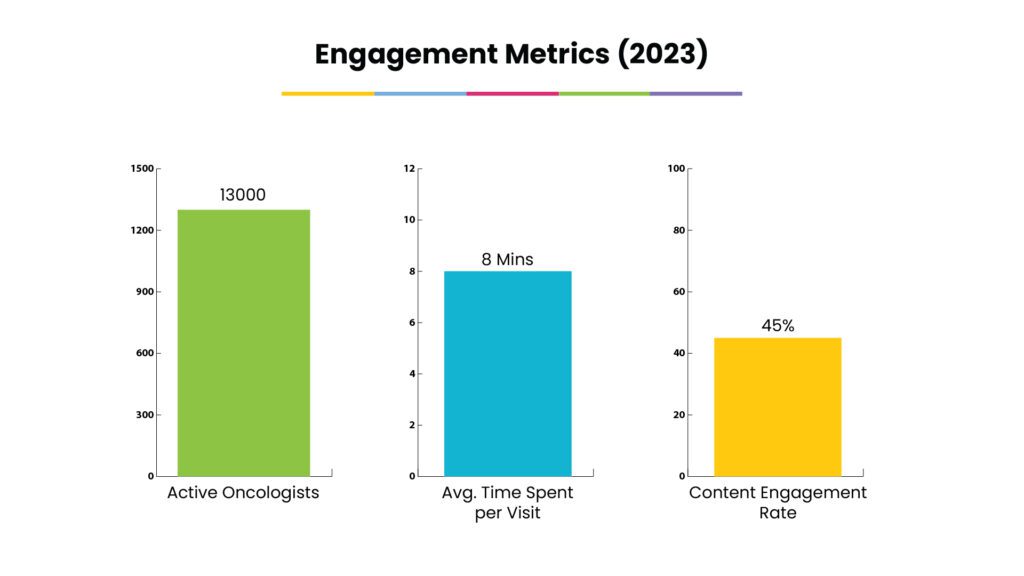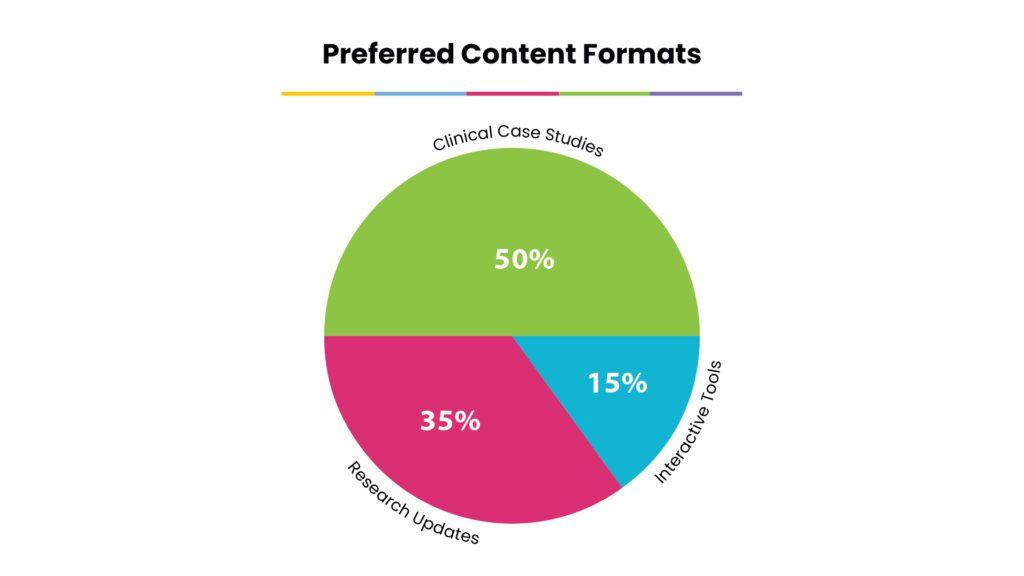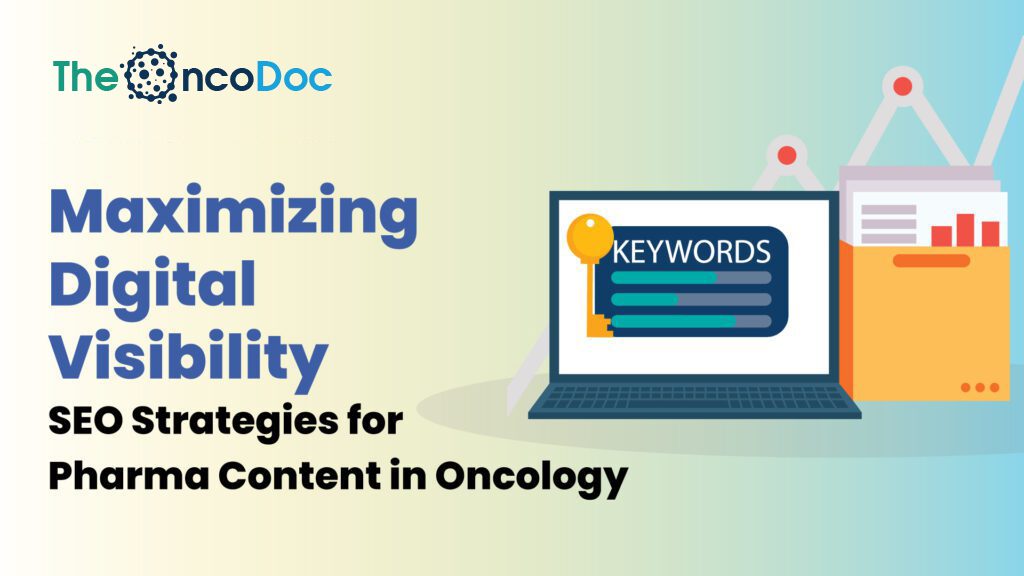In the ever-evolving field of oncology, SEO is not just a tool for visibility – it’s a bridge that connects pharma companies with oncologists. Hidoc amplifies this connection by delivering the right information at the right time, empowering oncologists to make informed decisions and improve patient outcomes.
The Growing Importance of SEO in Oncology Content
Oncologists are highly specialized professionals who rely on credible, up-to-date information to guide patient care decisions. SEO ensures that pharma content ranks high on search engines and platforms frequented by oncologists, making it easier for them to find relevant information.
Oncologists are at the forefront of cancer care, making decisions that directly impact patient outcomes. Access to credible, up-to-date information is essential in a field as complex and rapidly evolving as oncology. SEO ensures that pharma content ranks high on search engines and platforms frequented by oncologists, making it easier for them to find relevant, evidence-based resources.
“In today’s digital-first world, SEO isn’t just about visibility-it’s about delivering the right content to the right audience at the right time. For oncologists, this means providing actionable, evidence-based insights that align with their clinical needs.“
Why SEO Matters in Oncology
- Information Overload: Oncologists are inundated with information. SEO helps pharma companies cut through the noise and deliver content that is relevant as well as accessible.
- Time Constraints: With busy schedules, oncologists rely on search engines to quickly find answers to specific clinical questions.
- Trust and Credibility: High-ranking content is often perceived as more trustworthy, which is critical in a field where accuracy is paramount.
The Impact of Poor SEO
Failing to optimize content can result in missed opportunities to educate and engage oncologists. For example, if a pharma company’s content on a new immunotherapy treatment doesn’t rank well, oncologists may turn to competitors or less reliable sources for information.
Understanding keyword trends is the foundation of any successful SEO strategy. Oncologists search for a wide range of terms, from clinical guidelines to patient-centric resources. Here’s a deeper look at the types of keywords that resonate with this audience:
Clinical Keywords
Oncologists frequently search for terms related to specific treatments, therapies, and clinical scenarios.Examples include: “Immunotherapy for non-small cell lung cancer”, “PARP inhibitors in ovarian cancer maintenance therapy”, “CAR-T cell therapy for relapsed lymphoma”
Drug-Specific Keywords
Brand names and generic drug names are commonly searched, often in combination with terms like “side effects,” “dosing,” or “efficacy.”
For example: “Keytruda side effects in melanoma”, “Pembrolizumab dosing schedule”, “Adverse events with trastuzumab deruxtecan”
Guideline-Based Keywords
Oncologists rely on guidelines from organizations like the National Comprehensive Cancer Network (NCCN) and the American Society of Clinical Oncology (ASCO).
Searches often include: “NCCN guidelines for metastatic breast cancer”, “ASCO 2023 updates on colorectal cancer”, “ESMO recommendations for immunotherapy”
Patient-Centric Keywords
Oncologists also search for resources to support their patients, such as: “Managing chemotherapy-induced nausea”, “Cancer survivorship care plans”, “Financial assistance for cancer patients”
Emerging Keyword Categories
- Genomic and Biomarker Keywords: “KRAS mutations in pancreatic cancer” or “PD-L1 testing in NSCLC.”
- Treatment Modality Keywords: “Radiation therapy for glioblastoma” or “Targeted therapy for HER2-positive breast cancer.”
- Regional Variations: Keywords may differ by region, reflecting local treatment practices and guidelines.
Here’s the category-wise keyword distribution observed in 2024.

The wide use of Clinical Keywords was observed in the analysis as shown above.
Best Practices for SEO in Pharma Content
To maximize the impact of SEO, pharma companies must adopt a strategic approach tailored to the needs of oncologists. Here are some advanced best practices:
- Leverage Long-Tail Keywords: Oncologists often search for highly specific information. Long-tail keywords like “adjuvant therapy for stage III melanoma” or “managing immune-related adverse events” can help target niche queries and improve rankings.
- Optimize for Mobile: Over 70% of oncologists access content on mobile devices. Ensure your website is mobile-friendly, with fast load times and responsive design.
- Focus on E-A-T (Expertise, Authority, Trustworthiness): Google prioritizes content from credible sources. Partner with key opinion leaders (KOLs), cite peer-reviewed studies, and ensure your content adheres to regulatory guidelines.
- Use Visual and Interactive Content: Infographics, charts, and videos can enhance engagement. For example, a chart comparing treatment outcomes for different therapies can be highly effective.
- Regularly Update Content: Oncology is a rapidly evolving field. Regularly update your content to reflect the latest research, guidelines, and treatment options.
- Localize Content for Global Audiences: Translate and adapt content for different regions while maintaining SEO effectiveness. For example, a guide on “Managing chemotherapy side effects” may need to be tailored for different healthcare systems.
Why Do Oncologists Prefer Hidoc?
Hidoc has become a preferred platform for oncologists due to its focus on clinical relevance and user-friendly interface. Here’s why it stands out:
- Targeted Content: Hidoc’s algorithm delivers personalized content based on an oncologist’s specialty and interests.
- High Engagement Rates: With a 45% content engagement rate, the platform outperforms many other platforms in keeping oncologists engaged.
- Interactive Features: Tools like clinical decision support and case-based learning enhance the user experience.
The success can be measured by its impressive engagement metrics, which highlight its effectiveness in capturing and retaining the attention of oncologists.The metrics below highlight key performance indicators, including the number of active oncologists, the average time spent per visit, and the content engagement rate, demonstrating the platform’s effectiveness in engaging its target audience.

Not all content formats are created equal. Oncologists have distinct preferences when it comes to the type of content they engage with. The data reveals the following trends:

Half of the users engage with clinical case studies, which provide real-world scenarios and practical insights that oncologists can apply in their practice. Oncologists value staying up-to-date with the latest advancements, making research updates a popular choice as well.
Hidoc’s ability to deliver tailored, clinically relevant content makes it a go-to platform for oncologists seeking actionable insights.“
Key Takeaways
- Keyword Research is Critical: To align with oncologists’ search behavior, focus on clinical, drug-specific, and guideline-based keywords.
- Platform Matters: Hidoc’s high engagement rates make it a valuable platform for targeting oncologists.
- Content Quality is Key: Prioritize E-A-T principles and use visual content to enhance engagement.
- Stay Updated: Regularly update your content to reflect the latest advancements in oncology.
Conclusion
SEO is a powerful tool for pharma companies looking to engage oncologists. By understanding keyword trends, optimizing content for platforms like Hidoc, and adhering to best practices, pharma companies can ensure their content reaches and resonates with this critical audience. As the digital landscape evolves, staying ahead of SEO trends will be essential for maintaining visibility and engagement in the competitive oncology space.
“In the ever-evolving field of oncology, SEO is not just a tool for visibility – it’s a bridge that connects pharma companies with oncologists. Hidoc amplifies this connection by delivering the right information at the right time, empowering oncologists to make informed decisions and improve patient outcomes.“



